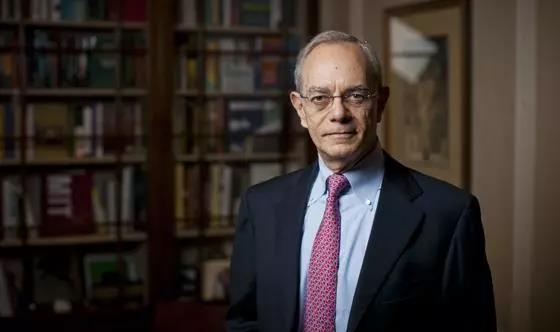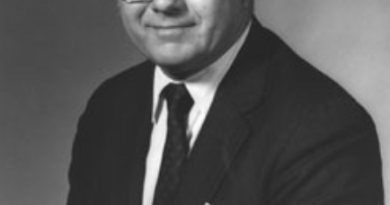美国麻省理工学院校长致信全校成员:移民如同氧气

今天,麻省理工学院校长向全校人员发表一封题为《移民如同氧气》的公开信,谈到中美关系给科研教育带来的影响,表示为华裔成员的境况感到沮丧。
今天,麻省理工学院校长 L. Rafael Reif 向在MIT工作和学习的教师、科研人员和学生发表了一封公开信,谈到中美关系给科研教育带来的影响。
Reif表示,在听到MIT的研究人员和学生在与政府机构打交道时感受到不公平的审查、被污名化和紧张不安,仅仅因为他们是华裔时,他“深感心碎”。
他表示,MIT对来自全球的成员表示热情和欢迎,呼吁不要对学术间谍活动制造毫无根据的怀疑和恐惧的有害气氛,称美国政府的移民言论和政策可能会 “产生严重的长期后果”。
Leo Rafael Reif (雷欧·拉斐尔·莱夫)是知名委内瑞拉裔美籍发明家、电气工程师和作家。在 2012 年 7 月 2 日,他接替苏珊・霍克菲尔德成为麻省理工学院校长。此前,他历任该校的教务长,工程系主任和微系统实验室(MIT-MTL)负责人。
Reif出生在马拉开波的一个东欧犹太移民家庭,其父母在 20 世纪 30 年代经由厄瓜多尔和哥伦比亚移居到美国。他于 1979 年从斯坦福大学获得电气工程博士学位的,并之后在斯坦福大学担任客座教授。
麻省理工并非唯一对政府加强学术审查感到不安的学府。上个月,耶鲁大学校长Peter Salovey(中文名苏必德)发表公开信,重申将一如既往欢迎国际学生和学者。
MIT校长公开信:《移民如同氧气》
以下电子邮件由麻省理工学院校长 L. Rafael Reif 今天发送给 MIT 社区。
给麻省理工学院的成员们,
MIT 像美国一样蓬勃发展,因为它吸引了世界上最优秀的人才,它是一个全球化的实验室,来自不同文化和背景的人们在这里相互激励,共同创造未来。
今天,对于一些与 MIT 华裔成员有关的令人痛苦的境况,我感到不得不表达我的沮丧。我认为,因为我们珍视他们作为朋友和同事,他们的处境及其更广泛的国家背景应该引起我们所有人的关心。
当前的境况
在美中两国努力应对日益紧张的关系之际,美国政府对个人涉嫌从事学术间谍活动的事件提出了严重关切。所谓学术间谍活动,被广泛理解为中国政府为获取高科技知识产权而进行的系统性努力。
作为包括 MIT 林肯实验室 (MIT Lincoln Laboratory) 在内的研究所的所长,我对国家安全的重视是认真对待的。我很清楚学术间谍活动的风险,MIT 已经制定了审慎的政策来防范此类行为。
但在管理这些风险时,我们必须非常小心,不要制造一种毫无根据的怀疑和恐惧的有害气氛。从全国各地的案例来看,极少数有中国背景的研究人员的行为可能确实存在恶意,但他们是例外,远非常态。然而,有许多教职员工、博士后、研究人员和学生告诉我,在与政府机构打交道时,他们现在感到受到了不公平的审查、被污名化和紧张不安—— 仅仅因为他们是华裔。
对于我们社区的协作力量和开放的理想,没有什么比这更具破坏性。听到中国和华裔同事的这些报道,我感到心碎。作为学者、教师、导师、发明家和企业家,他们不仅是我们学院的模范成员,而且是美国社会的杰出贡献者。令我深感不安的是,他们觉得自己得到的回报是普遍的不信任和不尊重。
向世界发出的信号
对于我们这些直接了解 MIT 全球社区和科学思想自由流动的巨大价值的人来说,了解这些同事的痛苦是很重要的,这是美国正在向世界发出的一个越来越响的信号的一部分。
长期签证延误。由于他们的宗教、种族、民族或国籍,大多数移民和许多其他群体承受了严厉的言辞。总的来说,这些行动和政策已经让人们意识到,美国正在关上大门 ——我们不再寻求吸引世界上最具驱动力和创造力的人才了。我认为这与美国的成功并不相符。我确信,这与 MIT 的成功不相符。我们应该知道,这将给国家和 MIT 造成严重的长期损失。
请允许我郑重地对麻省理工学院全球社区的每一位成员表示热情和欢迎:我们很高兴、自豪和幸运有你们与我们同在!致我们在世界各地的校友:我们仍是一个社区,因我们共同的价值观和理想而团结在一起!对于所有正在崭露头角的人才:如果你对创造一个更美好的世界充满激情,如果你梦想加入我们的社区,我们欢迎你的创造力,我们欢迎你不可阻挡的能量和抱负 —— 我们希望你找到加入我们的方法。
* * *
今年 5 月,世界失去了一位杰出的大师:1940 年毕业于 MIT 的建筑师贝聿铭 (I.M. Pei)。他在上海和香港长大,17 岁时来到美国求学。从波士顿到巴黎,从中国到华盛顿特区,以及在我们自己的校园,他留下了无数标志性建筑的遗产。用他自己的话说,他一生都有意识地活在他的中国根源中。然而,当他 102 岁去世时,《波士顿环球报》将他描述为 “他那一代人中最杰出的美国建筑师”。
美国体制也为我这个移民创造了空间,所有这些事实都可能同时成立。
在我 40 年的学术生涯中,我发现,大学隐藏的力量在于,每年秋季,它都会被潮涌而来的新生所刷新。我同样相信,美国的天才之处在于,移民不断地给美国带来活力 ——充满激情的活力、无畏的勇气、聪明才智以及渴望过上更好生活的人们的动力。
在确保我们的国家安全以及管理和改善移民制度所需的必要行动方面,当然有严肃立场的空间。但抛开当前的喧嚣不谈,我认为我们应该发出一个响亮而清晰的信号,那就是美国移民对于美国如何成为一个开放、创新和繁荣的国家至关重要。
在这样一个国家,移民是一种氧气,每一波新的移民浪潮都在为整个身体重新注入能量。作为一个社会,当我们向移民提供机会的礼物时,移民也将为我们共同的未来提供重要的燃料。我相信,这种智慧将永远指导我们在麻省理工学院的生活和工作。我希望它能继续指导我们的国家。
此致
L. Rafael Reif
公开信原文:
Letter to the MIT community: Immigration is a kind of oxygen
MIT News Office
June 25, 2019
The following email was sent today to the MIT community by President L. Rafael Reif.
To the members of the MIT community,
MIT has flourished, like the United States itself, because it has been a magnet for the world’s finest talent, a global laboratory where people from every culture and background inspire each other and invent the future, together.
Today, I feel compelled to share my dismay about some circumstances painfully relevant to our fellow MIT community members of Chinese descent. And I believe that because we treasure them as friends and colleagues, their situation and its larger national context should concern us all.
The situation
As the US and China have struggled with rising tensions, the US government has raised serious concerns about incidents of alleged academic espionage conducted by individuals through what is widely understood as a systematic effort of the Chinese government to acquire high-tech IP.
As head of an institute that includes MIT Lincoln Laboratory, I could not take national security more seriously. I am well aware of the risks of academic espionage, and MIT has established prudent policies to protect against such breaches.
But in managing these risks, we must take great care not to create a toxic atmosphere of unfounded suspicion and fear. Looking at cases across the nation, small numbers of researchers of Chinese background may indeed have acted in bad faith, but they are the exception and very far from the rule. Yet faculty members, post-docs, research staff and students tell me that, in their dealings with government agencies, they now feel unfairly scrutinized, stigmatized and on edge – because of their Chinese ethnicity alone.
Nothing could be further from – or more corrosive to – our community’s collaborative strength and open-hearted ideals. To hear such reports from Chinese and Chinese-American colleagues is heartbreaking. As scholars, teachers, mentors, inventors and entrepreneurs, they have been not only exemplary members of our community but exceptional contributors to American society. I am deeply troubled that they feel themselves repaid with generalized mistrust and disrespect.
The signal to the world
For those of us who know firsthand the immense value of MIT’s global community and of the free flow of scientific ideas, it is important to understand the distress of these colleagues as part of an increasingly loud signal the US is sending to the world.
Protracted visa delays. Harsh rhetoric against most immigrants and a range of other groups, because of religion, race, ethnicity or national origin. Together, such actions and policies have turned the volume all the way up on the message that the US is closing the door – that we no longer seek to be a magnet for the world’s most driven and creative individuals. I believe this message is not consistent with how America has succeeded. I am certain it is not how the Institute has succeeded. And we should expect it to have serious long-term costs for the nation and for MIT.
For the record, let me say with warmth and enthusiasm to every member of MIT’s intensely global community: We are glad, proud and fortunate to have you with us! To our alumni around the world: We remain one community, united by our shared values and ideals! And to all the rising talent out there: If you are passionate about making a better world, and if you dream of joining our community, we welcome your creativity, we welcome your unstoppable energy and aspiration – and we hope you can find a way to join us.
* * *
In May, the world lost a brilliant creative force: architect I.M. Pei, MIT Class of 1940. Raised in Shanghai and Hong Kong, he came to the United States at 17 to seek an education. He left a legacy of iconic buildings from Boston to Paris and China to Washington, DC, as well on our own campus. By his own account, he consciously stayed alive to his Chinese roots all his life. Yet, when he died at the age of 102, the Boston Globe described him as “the most prominent American architect of his generation.”
Thanks to the inspired American system that also made room for me as an immigrant, all of those facts can be true at the same time.
As I have discovered through 40 years in academia, the hidden strength of a university is that every fall, it is refreshed by a new tide of students. I am equally convinced that part of the genius of America is that it is continually refreshed by immigration – by the passionate energy, audacity, ingenuity and drive of people hungry for a better life.
There is certainly room for a wide range of serious positions on the actions necessary to ensure our national security and to manage and improve our nation’s immigration system. But above the noise of the current moment, the signal I believe we should be sending, loud and clear, is that the story of American immigration is essential to understanding how the US became, and remains, optimistic, open-minded, innovative and prosperous – a story of never-ending renewal.
In a nation like ours, immigration is a kind of oxygen, each fresh wave reenergizing the body as a whole. As a society, when we offer immigrants the gift of opportunity, we receive in return vital fuel for our shared future. I trust that this wisdom will always guide us in the life and work of MIT. And I hope it can continue to guide our nation.
Sincerely,
L. Rafael Reif

英文来源:http://news.mit.edu/2019/letter-community-immigration-is-oxygen-0625



